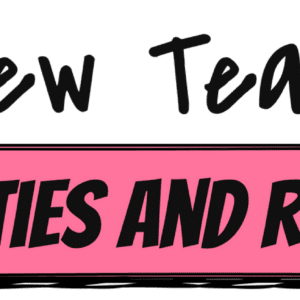The landscape of education is ever-evolving, with educational policies and standards often undergoing changes. In Australia, these changes are designed to improve the quality of education and adapt to the changing needs of students. For graduate teachers, staying updated with these changes is crucial, not only for their job search and interview performance but also for their future teaching practice. Here’s a guide to help you adapt to these changes smoothly.

See more: Navigating the Teaching Profession: A Comprehensive Guide for New Teachers.
Understanding the Importance of Staying Updated
Keeping abreast of changes in educational policies and standards is important for several reasons:
- Improved Job Prospects: Schools prefer hiring teachers who are familiar with current educational policies and standards. Knowledge of these changes reflects your commitment to the profession and your ability to deliver quality education.
- Enhanced Interview Performance: Interviewers often ask questions related to current educational policies. Being updated helps you answer these questions confidently and accurately.
- Effective Teaching Practice: Understanding these changes allows you to align your teaching methods and strategies with the updated policies and standards, ensuring effective teaching.
Strategies to Stay Updated
Here are some strategies to help you stay updated:
- Regularly Check Regulatory Websites: Regularly visit the websites of educational regulatory bodies, such as the Australian Curriculum, Assessment and Reporting Authority (ACARA), and your state’s education department. These websites often have sections dedicated to policy updates.
- Subscribe to Newsletters: Many educational organizations and regulatory bodies offer newsletters. Subscribing to these can provide you with regular updates directly to your inbox.
- Attend Seminars and Webinars: Educational institutions and organizations frequently conduct seminars and webinars on recent changes in policies and standards. Attending these can help you gain a deeper understanding of the changes.
- Engage in Professional Development: Engaging in professional development activities can help you stay updated. These activities may include workshops, training programs, and courses related to current educational policies and standards.
- Network with Other Teachers: Joining teacher networks or online forums can provide you with insights into how other teachers are adapting to these changes. You can also learn about changes in policies and standards that you might have missed.
Adapting to the Changes
Understanding the changes is just the first step. The next step is to adapt your teaching practices to align with these changes. This requires a willingness to learn and adjust. Experiment with new teaching methods and strategies, seek feedback from your peers, and refine your practices based on this feedback.
Final Thoughts
While staying updated with changes in educational policies and standards can be challenging, it’s an essential part of being a competent and effective teacher. By employing the right strategies and demonstrating adaptability, you can navigate this dynamic landscape with ease and confidence, enhancing your job prospects and teaching practices. Remember, every change is an opportunity for growth and learning. Embrace it and let it guide you on your path to becoming a successful educator.






